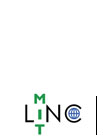 |
 |
 |
 |
 |
 |
 |
 |
 |
 |
 |
 |
 |

|
|
|
SCOPE OF CONFERENCE
MIT’s LINC is a consortium of educators from around the world who are interested in using distance and e-learning technologies to help their respective countries increase access to quality education, particularly high school and university education, for a larger percentage of the population. These educators turn to LINC as an organization through which they can make contact with others like themselves, not only with other educators but also with scientists, innovators, researchers, corporations, and foundations – all dedicated to leveraging ICT technologies for educational, social and economic development in emerging countries. LINC draws together people who otherwise would not meet – from all parts of the world and from diverse disciplines – and the resulting synergistic exchange expands and enriches the efforts of each participant. Contacts are made, methods shared, innovations presented and collaborations initiated. For more click here. LINC is motivated by one key idea: With today’s computer and telecommunications technologies, every young person can have a quality education regardless of his or her place of birth. We are interested in doing, not theorizing. Case studies reporting best practice or promising innovations are welcomed. We also welcome case studies suggesting policies that appear problematic, reporting on ‘mistakes not to be repeated.’ Many issues concern us: pedagogy; financing and sustainability; collaborative development of open educational resources; adaptability to local customs and culture; translation to local language; adaptability of content by editing and adding local materials; statistics of student performance including grades and retention rates; teacher training; methods of on-line support; experiences with blended learning, and many others. We do not insist on nor do we expect rigorous randomized ‘experimental design’ in reported research. Our interest in technology is limited to its application in education. For instance, if a community or region has only limited access to the international Internet, our interest is in steps that can be taken within this constraint – to bring quality, technology-enabled education to those learners. If you are in doubt about the topic you want to present, please email us at rclarsonmit.edu, and we will be pleased to respond quickly. |
![]()